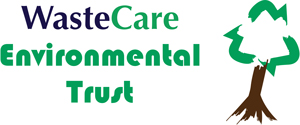The UK is expected to have met its target for the recycling of waste electrical and electronic equipment UK (WEEE) for 2015, but a surge in the volume of new products placed onto the market could make future targets harder to meet.
Data published last month (December 2015) shows that a total of 387,774 tonnes of all categories of household WEEE were collected for recycling between January and September 2015. This means that the UK is on course to meet its government target equivalent to about 43% – set by BIS – to collect 506,878 tonnes of WEEE throughout the year.
 Significantly, the volume of new products (EEE) placed onto the market between January and September 2015 has risen by around 15% compared to the same period in 2014. This could mean that a significantly higher proportion of WEEE could have to be collected to meet the 45% statutory target for 2016.
Significantly, the volume of new products (EEE) placed onto the market between January and September 2015 has risen by around 15% compared to the same period in 2014. This could mean that a significantly higher proportion of WEEE could have to be collected to meet the 45% statutory target for 2016.
This need to recycle more is because targets are set with regard to the amount of new EEE put on the market in previous years. The 2016 target, which the UK has to meet under the WEEE Directive, will be set proportionally to the total amount of EEE put onto the market during the preceding three years. Therefore, a significant increase in the volume of EEE placed on the market throughout the full 2015 year (only the January-September figures are known so far) could make the target more challenging in 2016.
Thus far, the 2015 EEE figures show that a total of 971,311 tonnes of EEE were placed onto the market by producers up to the end of September which represents an increase of around 128,686 tonnes when compared to the same period in 2014. If the volumes of EEE placed on the market in the last quarter of 2015 were simply to mirror those seen in the final quarter of the previous year, the UK might have to collect as much as 557,000 tonnes of WEEE to meet the 45% target for 2016 it has been calculated. Responding to the data, the Department for Business has reaffirmed its confidence that the overall target for 2015 will be met, but the Department has not offered any view on likely targets for future years.
A BIS spokesman said: “The Q3 data shows we are broadly on track to achieve collections in line with the targets placed on Producer Compliance Schemes at the start of the year.”
Editor’s note:
The continued weak commodity prices through 2015 combined with low PRN prices has severely impacted on WEEE recyclers up and down the country. Having removed the need for Compliance Schemes to meet their recycling obligation through evidence, this has created in essence a monopoly. It is estimated that £15-20m pa has shifted from the many to the few. Whilst we await the inevitable denouement, we can’t expect the recycling industry to invest in this sector. We can only hope that commonsense wins through, sooner rather than later.





